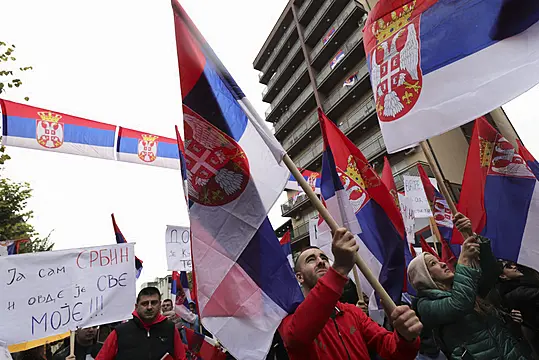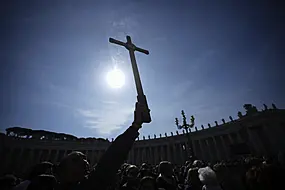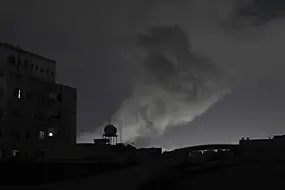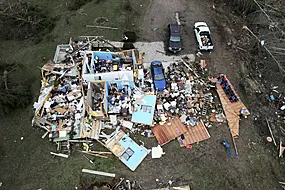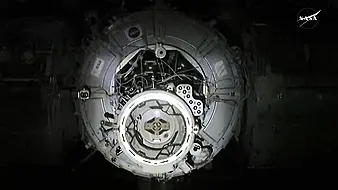Several thousand ethnic Serbs rallied in Kosovo as a dispute over vehicle number plates heightened tensions between Serbia and its former province.
The government’s decision to gradually ban Serbia-issued licence plates has angered Kosovo Serbs, most of whom do not recognise Kosovo’s 2008 declaration of independence.
Members of the ethnic Serb minority have left their government jobs in a protest over the directive.
The Serbian government, with support from China and Russia, also has refused to acknowledge Kosovo’s statehood. The United States and its allies recognise Kosovo as an independent country.
During the protest in the northern Kosovo town of Mitrovica, Serb political leaders said the police officers, judges and other public employees would not return to their jobs unless Kosovo’s government reversed its number plate policy.

“We are on our land and we will not give up,” Serb politician Goran Rakic said. “There is no withdrawal. Long live Serbia.”
The issue of Kosovo’s independence sparked a 1998-99 war in which some 13,000 people died. Serbia launched a brutal crackdown to curb a separatist rebellion by ethnic Albanians. Nato bombed Serbia in 1999 to end the war.
Both Serbia and Kosovo have been told they must normalise relations as part of their effort to join the European Union. However, EU-mediated talks have stalled.
Further dashing hopes of a quick resolution, Serbian Foreign Minister Ivica Dacic said the country’s leadership has rejected the latest proposal. It reportedly offered Serbia a faster track to EU membership in exchange for Kosovo’s membership in the United Nations.
Dacic told pro-government broadcast Prva TV that the proposal submitted by France and Germany “starts from the position that the independence of Kosovo is already a foregone conclusion”.
“Serbia cannot accept that,” he said.
Kosovo’s government previously postponed a requirement for vehicles holding old or Serbian licence plates to replace them with Kosovar ones. Serbia has required the reverse for vehicles coming in from Kosovo for 11 years.
EU and US officials have stepped up efforts to bring Serbia and Kosovo closer to an agreement on fully normalising their relations. The West fears Russia could try to destabilise the Balkans to avert at least some attention from its invasion of Ukraine.
